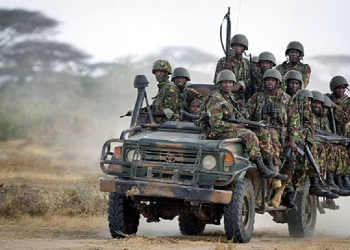At least 20 people have died and over 450 have been injured due to a second wave of explosions from wireless communication devices in Lebanon, according to the country’s health ministry.
The blasts, which occurred in the southern suburbs of Beirut, the Bekaa Valley, and southern Lebanon—areas known to be strongholds of the armed group Hezbollah—were reportedly caused by walkie-talkies used by the group. Some explosions coincided with funerals for victims of earlier blasts, which had killed 12 people when Hezbollah members’ pagers exploded on Tuesday; Hezbollah attributed that incident to Israel, which has not commented.
The explosions come as Israel’s Defence Minister Yoav Gallant announced a “new phase in the war,” with an Israeli army division redeployed to the north. UN Secretary-General António Guterres has warned of the “serious risk of a dramatic escalation” and urged all parties to exercise maximum restraint, noting that the strategy behind the device explosions could indicate preparations for a significant military operation.
Fears of an all-out conflict have escalated following 11 months of cross-border fighting sparked by the ongoing war between Israel and Hamas in Gaza. Following Wednesday’s explosions, Israeli Prime Minister Benjamin Netanyahu pledged to ensure the safe return of displaced residents from northern Israel.
Hezbollah claims its actions are in support of Hamas and will persist until the conflict in Gaza ceases. The group’s leader, Hassan Nasrallah, is expected to deliver a speech on Thursday that may clarify their future intentions.
Hezbollah’s media office reported the deaths of 13 of its fighters since the recent explosions, including a 16-year-old boy, and claimed they targeted Israeli forces during the day, firing rockets into Israeli-occupied territories. The Israeli military confirmed the launch of about 30 projectiles from Lebanon but reported no injuries.
The recent explosions have shocked many in Lebanon, particularly given that thousands of pagers exploded simultaneously after a message believed to be from Hezbollah was received. The health minister confirmed that the Tuesday blasts resulted in numerous casualties, including children.
The Lebanese Red Cross deployed over 30 ambulances in response to the incidents. Investigations revealed that the explosions were linked to walkie-talkies used by Hezbollah members, including a specific model, the ICOM-V82, which is now discontinued. Reports suggest that these devices may have been booby-trapped by Israeli intelligence prior to delivery.
Medical professionals in Beirut have described the severity of the injuries sustained, with many patients suffering significant eye and facial damage.
















